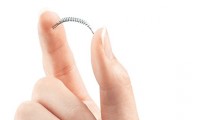-
Despite rough quarter, Bayer’s duo of Nubeqa and Kerendia continue to excel
- Source: https://www.fiercepharma.com/pharma/rough-quarter-bayers-duo-nubeqa-kerendia-continue-excel
- 123
- May 14, 2023
-
Bayer’s Kerendia approved in the US to slow CKD in type 2 diabetes patients
- Source: drugdu
- 1,036
- August 26, 2021
-
Bayer to acquire Asklepios Bio in foray into gene therapy worth up to $4 billion
- Source: drugdu
- 283
- November 2, 2020
-
Janssen, Bayer Plans to Shut South Korean Plants Seeing a Plunging Demand
- Source: FiercePharma
- 684
- August 8, 2018
-
Bayer to Sell its Brands to Denmark’s Leo Pharma
- Source: Reuters
- 550
- August 2, 2018
-
Bayer Sidelines Essure Concerns as Anecdotal, Legal Claims Build Up
- Source: FierceBiotech
- 527
- July 30, 2018
-
Bayer Announces the end of Essure Sales in the US
- Source: MDDI Online
- 644
- July 25, 2018
-
Bayer announces completion of rolling submission of New Drug Application in the U.S. for larotrectinib for the treatment of TRK fusion cancer
- Source: investor.bayer.de
- 593
- March 28, 2018
-
Bayer receives approval in China for Stivarga® (regorafenib) for the second-line systemic Treatment of liver cancer (for specialized target groups only)
- Source: 1stoncology
- 534
- March 20, 2018
your submission has already been received.
OK
Subscribe
Please enter a valid Email address!
Submit
The most relevant industry news & insight will be sent to you every two weeks.













